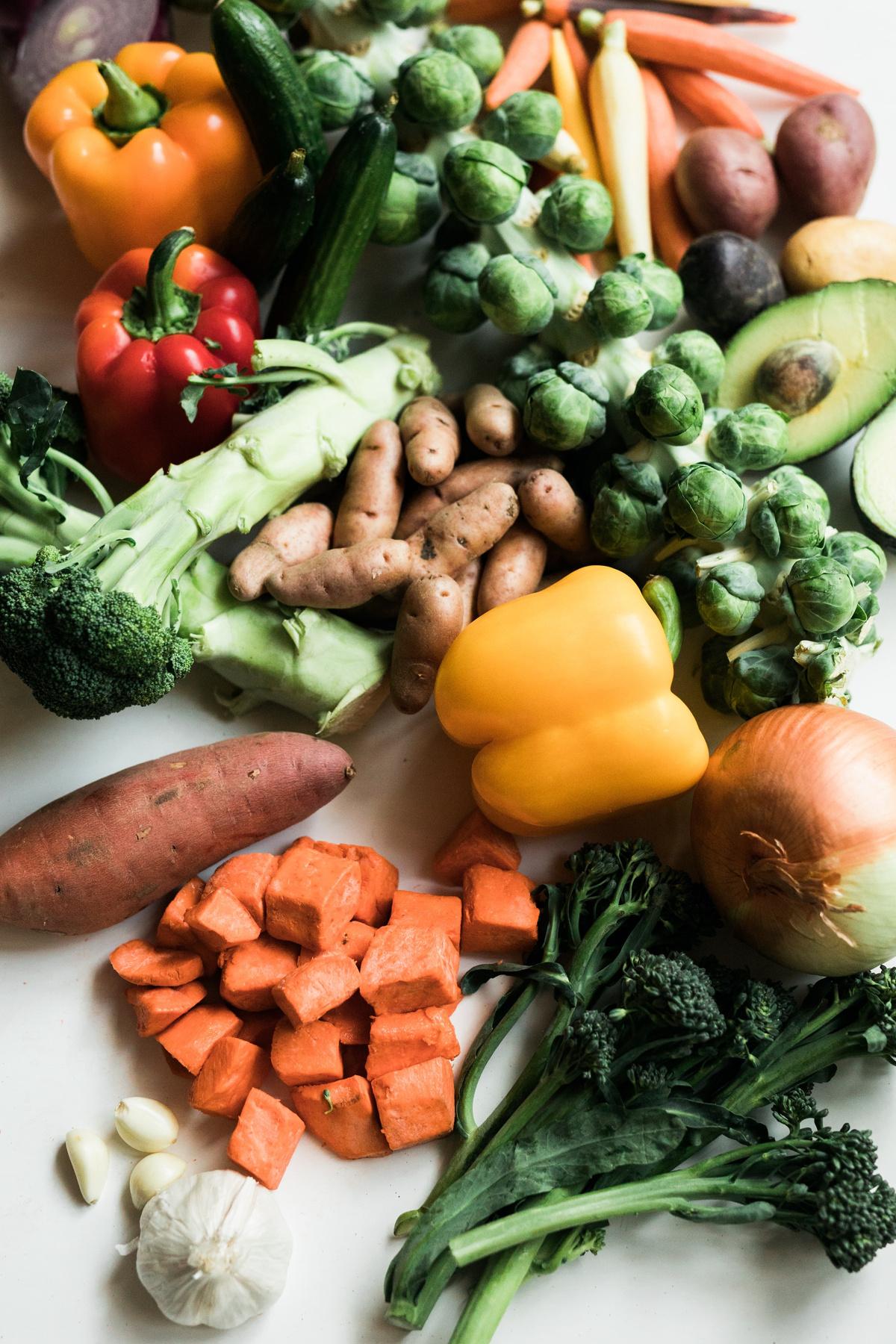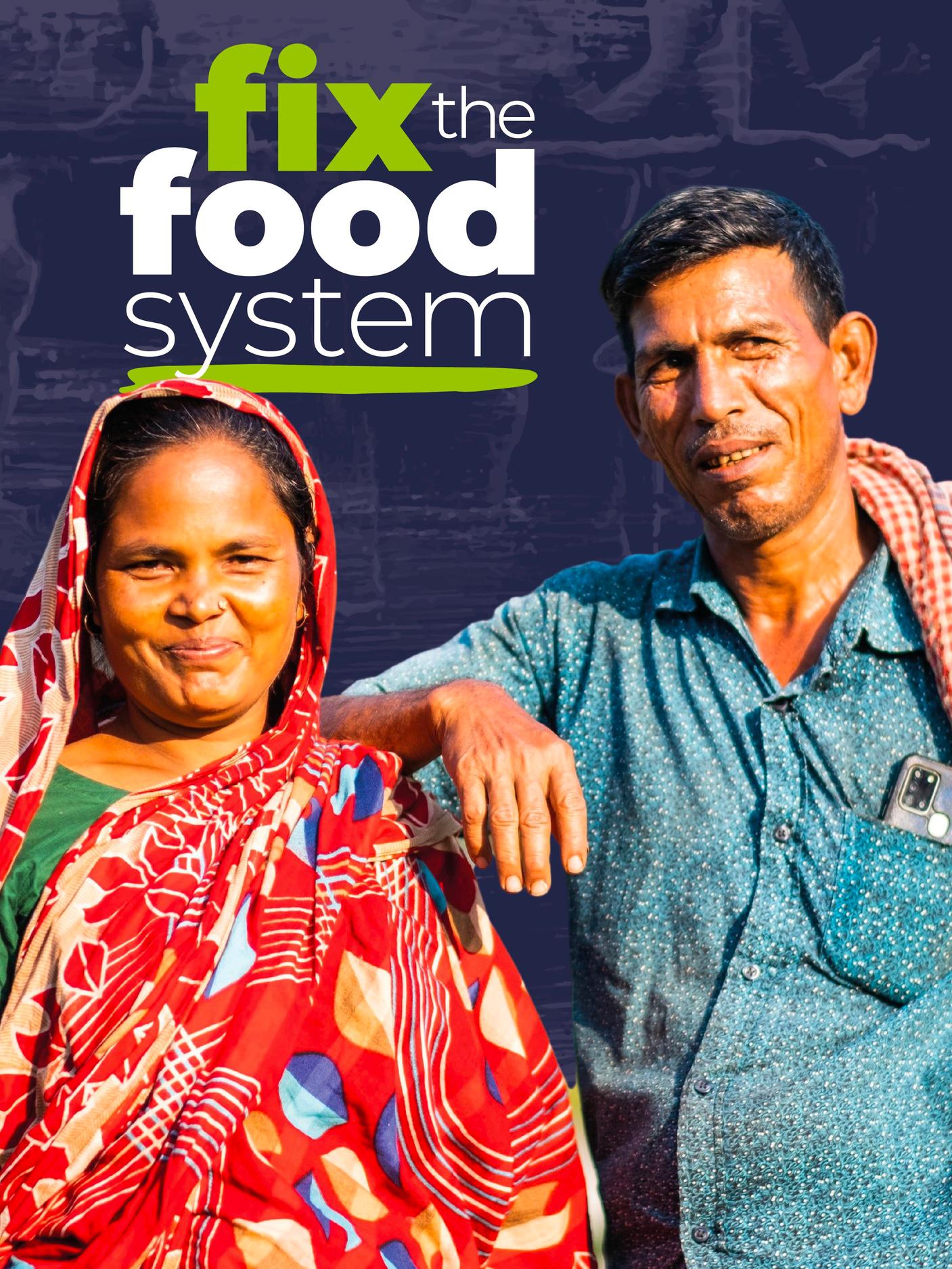
3 minute read
Who owns your food?
FOOD SECURITY IS NOT ONLY A THREAT IN THE GLOBAL SOUTH.
Paul Bodenham of Caritas Diocese of Nottingham explores how Catholic Social Teaching can help us tackle it here in the Diocese of Nottingham
Advertisement
Our friends at CAFOD have launched a new campaign to ‘Fix the Food System’. It highlights the threat to farmers worldwide from the growing monopoly of a small number of seed corporations. Instead of being able to choose their own seeds, small farmers are increasingly being forced to purchase commercial seeds - or face the risk of prosecution under new laws promoted by global financial institutions and agribusiness corporations.
The solution to this injustice is ‘seed sovereignty’ – safeguarding the age-old rights of farmers and consumers to self-determination And food sovereignty is not just a challenge for people abroad Let me tell you why it matters here, even in Nottingham Diocese This is the first of a number of articles over the coming year, thanks to support from CAFOD, exploring the wider vulnerabilities of our food system, and how Catholic social teaching can help us respond
The loss of crop diversity is a worldwide concern and is already threatening food security even in the UK According to the Food and Agriculture Organisation the world food supply now has only a quarter of the genetic diversity it had in 1900
That puts everyone at greater risk of food shocks What is more, climate change is causing increasingly frequent extreme weather, as we found this winter when the supermarket shelves were empty of salads from the western Mediterranean And monocrops are more vulnerable to pests and diseases, just as Ireland witnessed in the potato famine nearly 200 years ago Such pathogens are predicted to grow more widespread as the climate warms
Furthermore repeatedly planting the same crops on the same land depletes soil nutrients, in turn making us ever more reliant on artificial fertilisers Meanwhile the phosphate supplies on which chemical fertilisers rely are based are diminishing; according to some estimates, we could hit ‘peak phosphorus’ in current lifetimes
When it comes to food security, it is fair to say we’re in a pickle However Catholic social teaching gives us some valuable tools to understand the need for crop diversity and food sovereignty, and take action
Obviously diversifying our global seedbank is one way of safeguarding God’s Creation, which Pope Francis’ ‘green encyclical’ Laudato Si establishes as a crucial principle of Catholic social teaching. Seed sovereignty also represents the ‘option for the poor’, another key principle: the more diverse our crops, the more resilient our food supply, and the less risk to the livelihoods of the poorest households Given that the current system is storing up problems for the future, crop diversity is also important for the common good – a third tenet of the Church’s social teaching – not only for those currently alive, but also for future generations
Laudato Si returns time and again to the way our food choices affect the environment, and vice-versa In it Pope Francis urges that “political activity be directed to modifying consumption, developing an economy of waste disposal and recycling, protecting certain species and planning a diversified agriculture and the rotation of crops” (180) It’s said the personal is political, so what might that look like in our own choices?
Crop diversity is one of the guiding principles of organic farming Of course it is theoretically possible for conventional chemically-enhanced agriculture to restore variety to our food supply, but that is not happening: agribusiness corporations and the profit motive for shareholders are biased towards standardisation As Pope Francis says, “Economies of scale, especially in the agricultural sector, end up forcing smallholders [and, we can add, bigger farmers too] to abandon their traditional crops”
(LS 129)
One movement which demonstrates Catholic social teaching in practice is called Community Supported Agriculture CSA schemes are like cooperatives in which consumers and farmers join to share the responsibilities, risks and rewards of farming, cutting out the ‘middlemen’
In Nottingham Diocese there are several such schemes Leicestershire has three: Community Harvest at Whetstone, CLOGs near Desford, and Stanford Hall near Lutterworth In Lincolnshire there are Ropsley Market Garden near Grantham Middle World Farms at Washingborough
There are other ways you can bring your food choices into closer conformity with Catholic social teaching and the Gospel values it represents Look out for rare cultivars in your local shops and add some variety to your cooking Farmer's markets often have a bigger selection
All of these schemes offer ways to reduce the miles your food has travelled from farm to fork With them you can help to restore food sovereignty here in the East Midlands, just as CAFOD is pressing for it to be restored worldwide
Find out more about CAFOD’s Fix the Food System campaign at cafod.org.uk
Find out more about Community Supported Agriculture at communitysupportedagriculture.org.uk/find-a-csa











